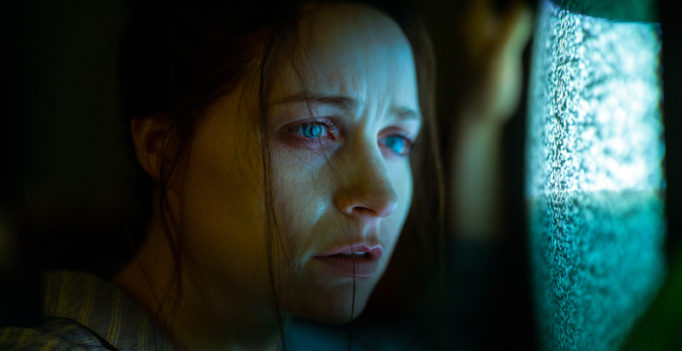Is a movie still a success if it didn’t come through on its initial promise, yet still left an effective impression? I had a similar reaction earlier this year to Saint Maud, and here I am again with Censor, a horror from writer/director Prano Bailey-Bond that moved me even though I was never truly scared.
Set in the 1980s during the controversial era of provocative and graphic films labeled “video nasties”, Enid (Niamh Algar) works diligently for the UK’s censorship board to monitor when special effects go “too far”. She’s precise with her notes, and nothing makes her squeamish. When she’s not preoccupied with work, Enid fixates on the disappearance of her sister – a tragedy that occurred when the siblings were kids. Enid’s worlds collide, however, when she reviews a new movie that eerily recreates her traumatic past.
Favouring its slow burn pace, Censor takes a while to get going. The film eventually gets under our skin by how Prano Bailey-Bond drags out discomfort, milking atmospheric creepiness with intercutting bursts of intense violence. This approach is effective, but it doesn’t give the audience anything to be scared about. Because the story is so personal to the main character, it’s tough for viewers to share Enid’s fear and paranoia.
However, what general audiences can relate to is how Enid’s moviegoing experience. Censor may appear to be an homage to a cinematic era but, at least on a thematic level, it’s more about perspective and what movie goers personally project onto movies. There are some heartbreaking moments in Censor that branch off of this idea, and they become some of this year’s most memorable scenes because of Prano Bailey-Bond’s sensitivity as a blooming storyteller.
**********
Do You Tweet? Follow These Tweeple:
Addison Wylie: @AddisonWylie





Be the first to comment